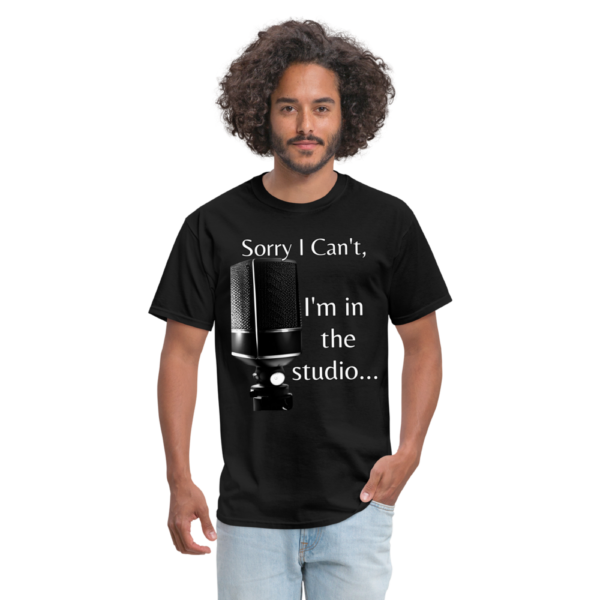Your cart is currently empty!
Tag: digital audio
How Microphones Make You Sound On-Key: A Journey Through Innovation and History 🎤✨
Have you ever wondered how modern microphones not only capture your voice but also make you sound better than you think you do? Whether you’re belting out your favorite tune in the shower or recording the next viral hit in your home studio, there’s a fascinating blend of history, engineering, and digital magic behind every note. In this post, we dive into the evolution of microphone technology—from its humble beginnings to the cutting-edge digital processing that can correct your pitch in real time. Read on, comment with your thoughts, and share this article if you find it as amazing as we do!
The Early Days: Analog Beginnings
Microphones have come a long way since their inception in the late 19th century. The first microphones were rudimentary devices used primarily for telephone communication and early radio broadcasts. These devices converted sound waves into electrical signals using simple mechanical processes, and while they didn’t have the sophistication of modern equipment, they laid the groundwork for everything that came later.
In the early 1900s, engineers experimented with carbon microphones, which were widely used for decades due to their relatively low cost and simplicity. Even though these microphones didn’t offer the pristine audio quality that we enjoy today, they were a stepping stone toward capturing the nuances of human speech and song. This period was all about exploration, as inventors sought ways to improve sound clarity and fidelity.
The Transition to Electronic Microphones
By the mid-20th century, the demand for better audio quality led to significant breakthroughs. Dynamic microphones, with their rugged construction and ability to handle high sound pressure levels, became the go-to for live performances. They were designed to pick up not just vocals but the entire energy of a performance, making them a favorite among rock stars and broadcasters alike.
As the recording industry exploded in the 1960s and 1970s, condenser microphones started to gain popularity. These microphones offered greater sensitivity and a broader frequency response, which allowed studios to capture every subtle detail of a vocal performance. With these innovations, singers were no longer limited by the imperfections of their natural voice. Instead, they could leverage technology to produce recordings that sounded almost flawless.
The Birth of Pitch Correction Technology
While early microphones focused on capturing sound accurately, the real game-changer came with the advent of digital processing. In the 1990s, the music industry was transformed by the introduction of pitch correction software. This technology, which many know by the popular name Auto-Tune, revolutionized the way we approach vocal recordings.
Imagine stepping into a recording booth knowing that your performance will be subtly enhanced to stay perfectly on-key. That’s exactly what modern microphones integrated with digital signal processing can do today. These systems analyze the incoming audio, detect slight pitch deviations, and correct them in real time. The result is a vocal performance that sounds polished and professional—even if you’re not a trained singer.
The Science Behind Pitch Correction
Modern pitch correction is an impressive blend of acoustics, computer science, and musical theory. When you sing into a microphone equipped with digital processing capabilities, the device first converts your voice into a digital signal. Then, advanced algorithms analyze the frequency of your sound waves, comparing them to the desired musical notes.
If your pitch is slightly off, the system gently nudges it back into perfect alignment. This process happens so quickly that it’s almost imperceptible, leaving you with a vocal track that sounds remarkably in-tune. Beyond pitch correction, these digital systems can also add other enhancements like reverb, equalization, and dynamic range compression, all of which contribute to a fuller, more vibrant sound.
How Modern Microphones Enhance Your Voice
Today’s microphones are not just passive devices—they’re intelligent pieces of technology designed to enhance every aspect of your vocal performance. Here are some of the ways they help you sound better than you might expect:
Real-Time Pitch Correction
Thanks to digital signal processing, many modern microphones can correct your pitch in real time. Whether you’re recording in a studio or performing live, this technology ensures that even minor imperfections are smoothed out, giving your voice that “on-key” quality that audiences love.
Noise Reduction and Signal Clarity
Another key advancement is the integration of noise reduction technology. Modern microphones are equipped with sensors and software that minimize background noise, ensuring that your voice remains the focal point of the recording. This clarity not only makes your performance more professional but also helps your voice cut through the mix in a crowded live setting.
Equalization and Dynamic Range
Microphones today often come with built-in equalization features that can adjust the tonal balance of your voice. By fine-tuning the lows, mids, and highs, these systems can bring out the best qualities in your voice, making every note sound warm, rich, and full of character. Additionally, dynamic range processing helps manage the variations in your vocal volume, ensuring that every part of your performance is heard clearly and consistently.
The Digital Revolution: From Studio to Smartphone
The integration of digital technology in microphones didn’t just stop in professional studios. With the advent of smartphones and portable recording devices, advanced microphone technology is now in the hands of everyday users. Whether you’re using a handheld microphone for a live event or a lapel mic for a video blog, the same principles of digital enhancement apply.
Today’s digital microphones and recording apps allow you to capture studio-quality sound on the go. They come equipped with various filters and correction tools that let you adjust your recording to perfection before you even hit the publish button. This democratization of technology means that everyone has the potential to sound like a professional, regardless of their natural vocal ability.
Future Trends in Microphone Technology
As we look to the future, the evolution of microphone technology shows no signs of slowing down. Researchers and engineers are continually working on new ways to integrate artificial intelligence and machine learning into audio processing. These advancements promise even greater precision in pitch correction and voice enhancement, along with more intuitive user interfaces.
Imagine a world where your microphone not only corrects your pitch but also learns your unique vocal style, offering personalized suggestions to help you improve over time. Future devices might also be capable of simulating various acoustic environments, giving you the flexibility to experiment with different soundscapes at the click of a button. The possibilities are truly endless, and each breakthrough brings us closer to a world where every performance is a masterpiece.
The Impact on the Music Industry and Beyond
The innovations in microphone technology have had a profound impact on the music industry. Artists are now able to experiment with their sound in ways that were once unimaginable. Vocal effects that were once reserved for the most advanced studios are now accessible to everyone. This shift has not only democratized music production but has also led to the creation of entirely new genres and styles.
Beyond music, enhanced microphone technology is playing a crucial role in fields like podcasting, broadcasting, and even virtual meetings. With the rise of remote work and digital communication, clear and reliable audio is more important than ever. Whether it’s a business conference or a live online class, high-quality microphones ensure that every word is heard with clarity and precision.
Bringing It All Together: How You Can Benefit
Understanding the history and technology behind modern microphones can give you a newfound appreciation for your own voice. Whether you’re an aspiring musician, a content creator, or someone who just loves to sing, knowing that you have access to tools that help you sound better than you might think is incredibly empowering.
Modern microphones are more than just hardware—they are sophisticated tools that harness decades of innovation. By leveraging digital processing, real-time pitch correction, and noise reduction, these devices make it possible for anyone to achieve a polished, professional sound. And as technology continues to evolve, the tools available to us will only get better, opening up even more creative possibilities.
Final Thoughts
The journey from early analog microphones to today’s digital marvels is a testament to human ingenuity and the relentless pursuit of excellence in sound. Next time you sing, remember that behind every note is a rich history of innovation and technology working tirelessly to ensure you always hit the right key.
We’d love to hear from you! What’s your experience with modern microphone technology? Do you have any favorite gadgets or apps that help you sound your best? Drop a comment below and share this post with your friends who might also be interested in the incredible evolution of microphone technology.
Keep singing, keep sharing, and stay tuned for more insights into the tech that makes our world sound amazing!
I Can’t | Music Studio Unisex Classic T-Shirt
$19.99I Can’t | Music Studio Unisex Classic T-Shirt. Show off your passion for music with the “I Can’t | Music Studio” Unisex Classic T-Shirt. Designed for musicians, producers, and music lovers, this comfortable tee is perfect for studio sessions, casual outings, or expressing your creative vibes.
-

Hungry and Humble Football Player Flapping Arms Touchdown Celebration Unisex Classic T-Shirt #philly
$19.99 Select options This product has multiple variants. The options may be chosen on the product page -

Africatown in Philly Phrase Unisex Classic T-Shirt
$13.99 Select options This product has multiple variants. The options may be chosen on the product page -

Vintage Funny Cat Selfie UFO Alien Invasion Unisex Classic T-Shirt
$13.99 Select options This product has multiple variants. The options may be chosen on the product page -

Vintage Philly Underdogs German Shepherds Unisex Classic T-Shirt
$9.99 Select options This product has multiple variants. The options may be chosen on the product page
————————————————
We use AI GPT Chatbots to help with our content and may get some things wrong.
————————————————-
-



